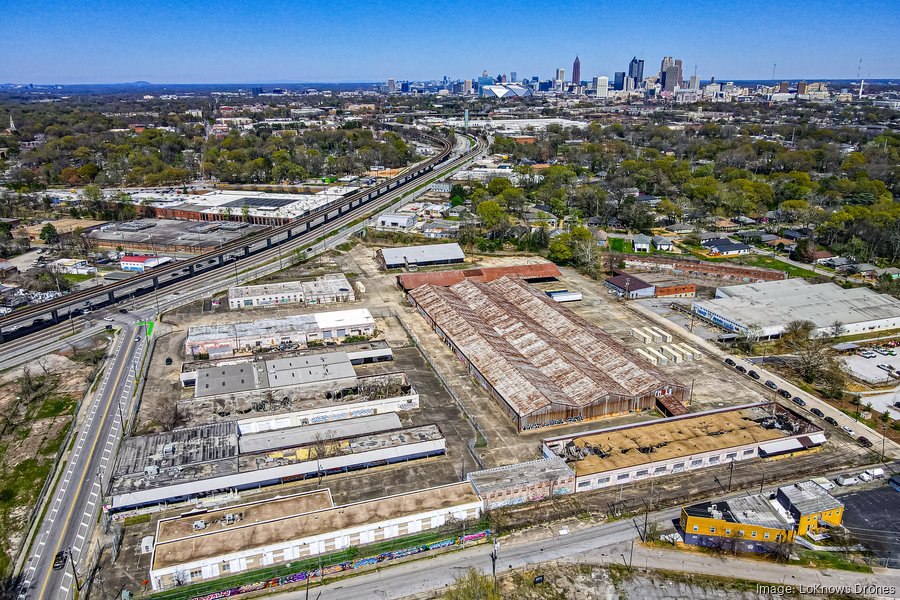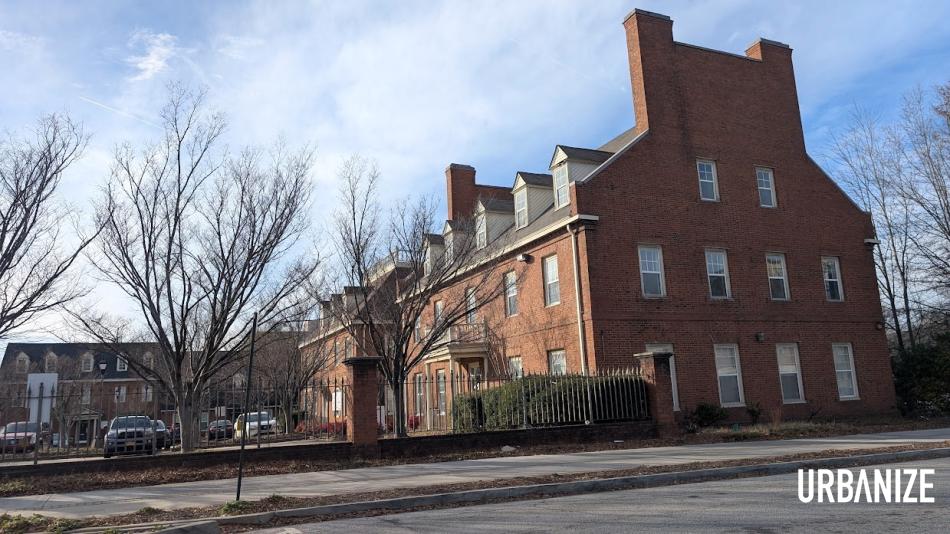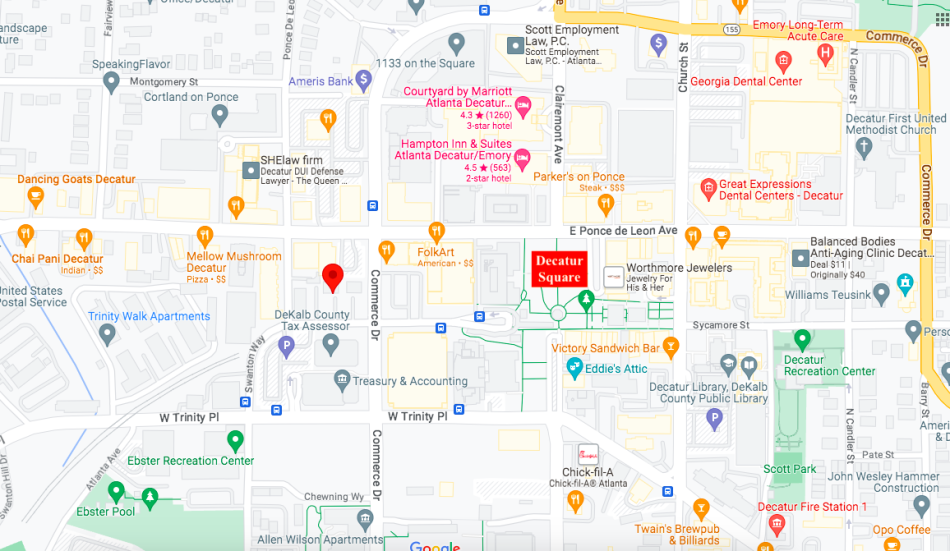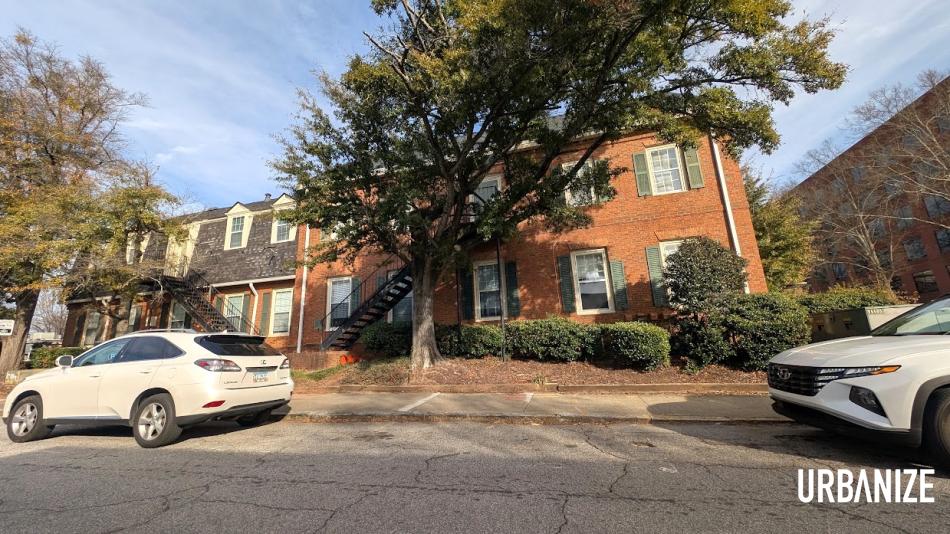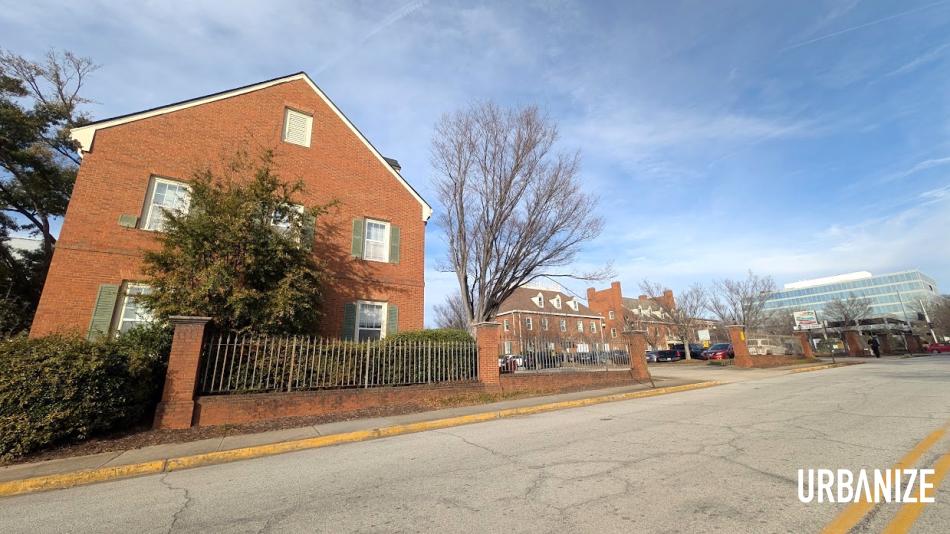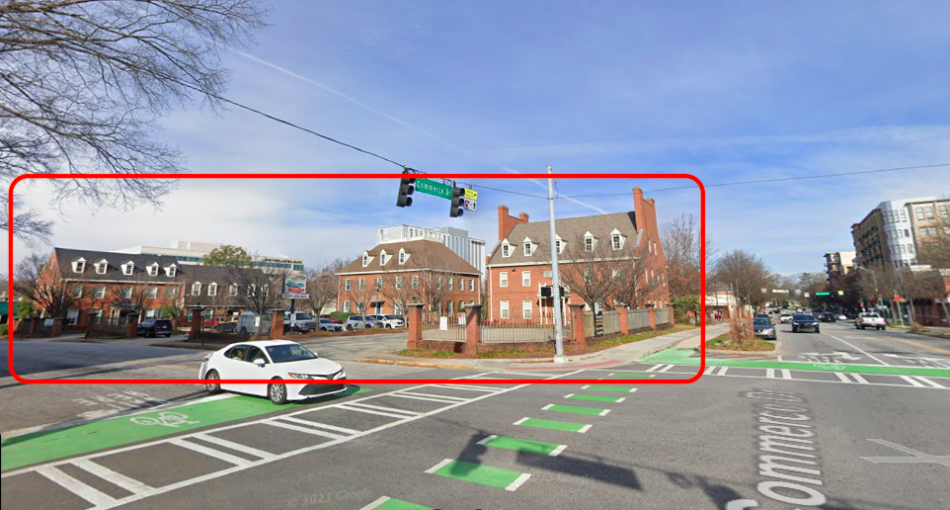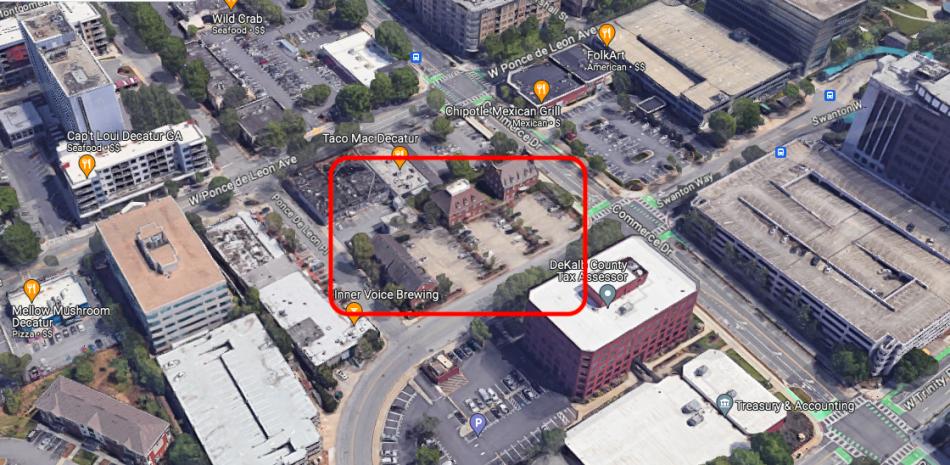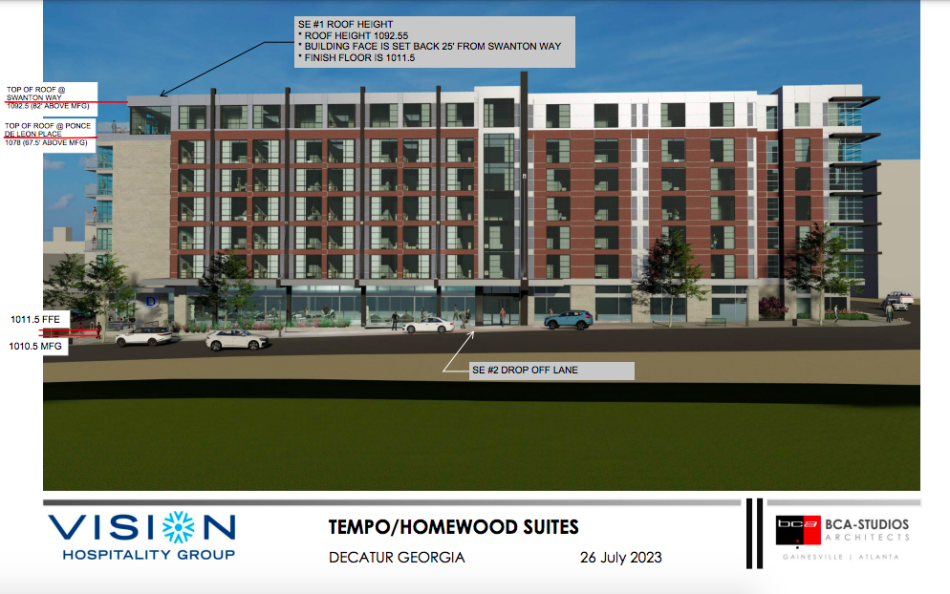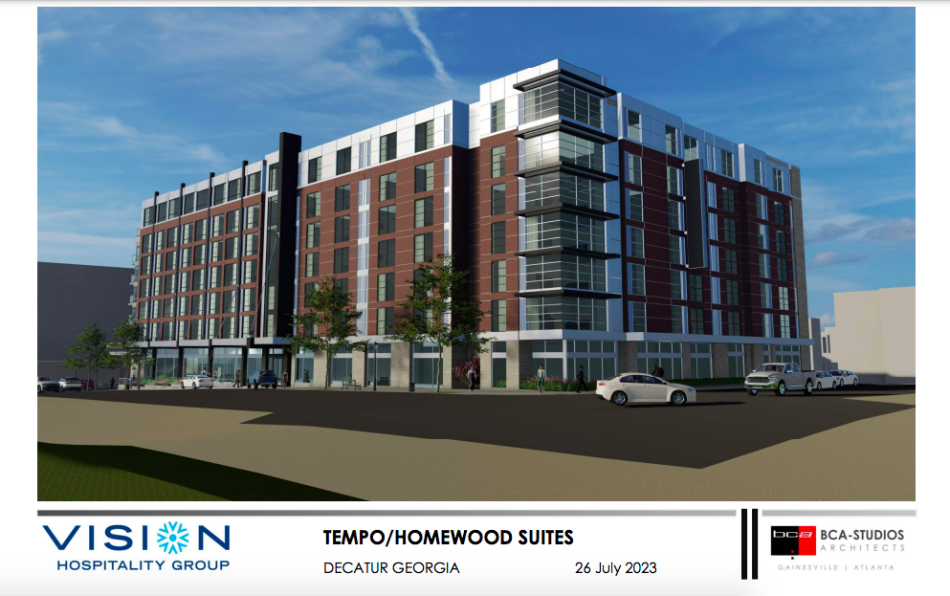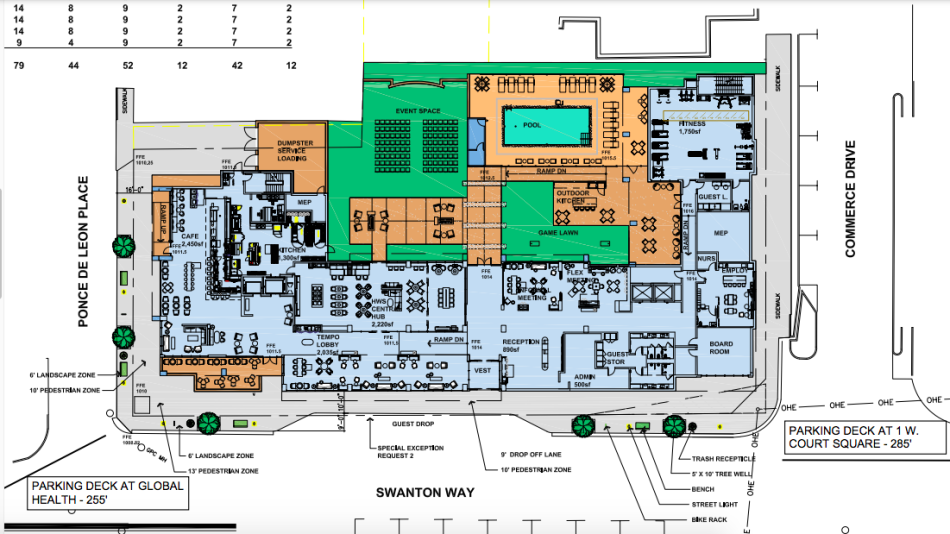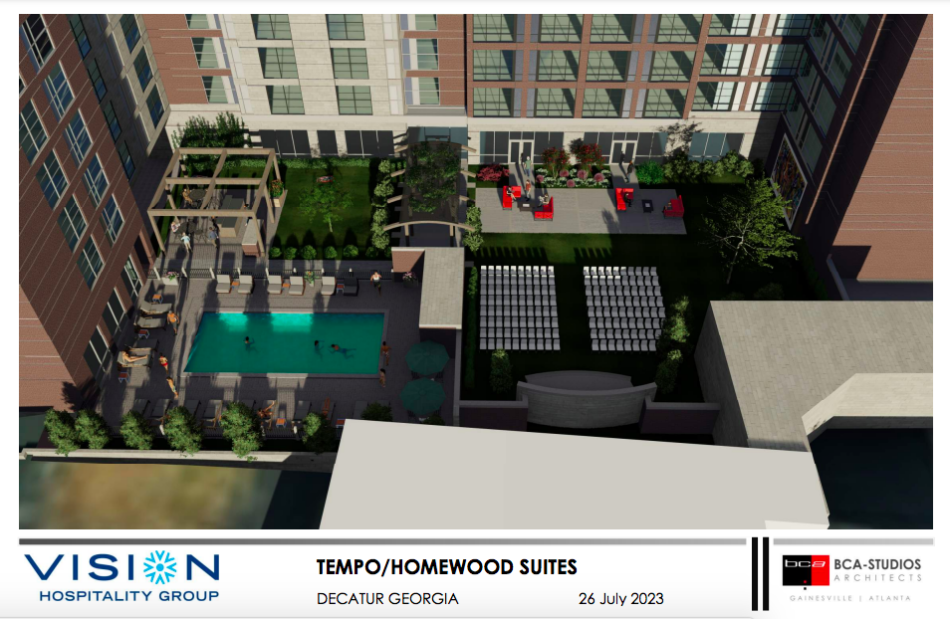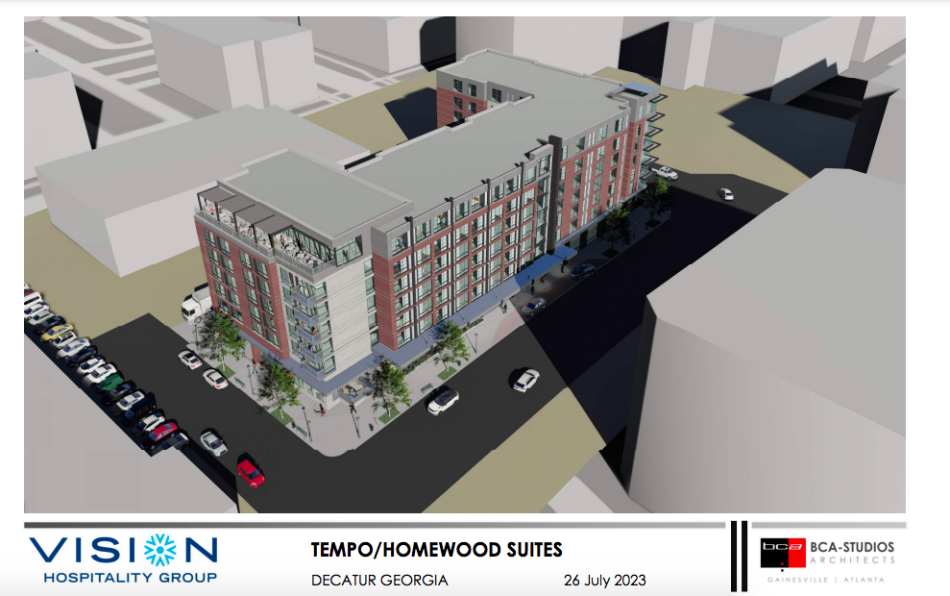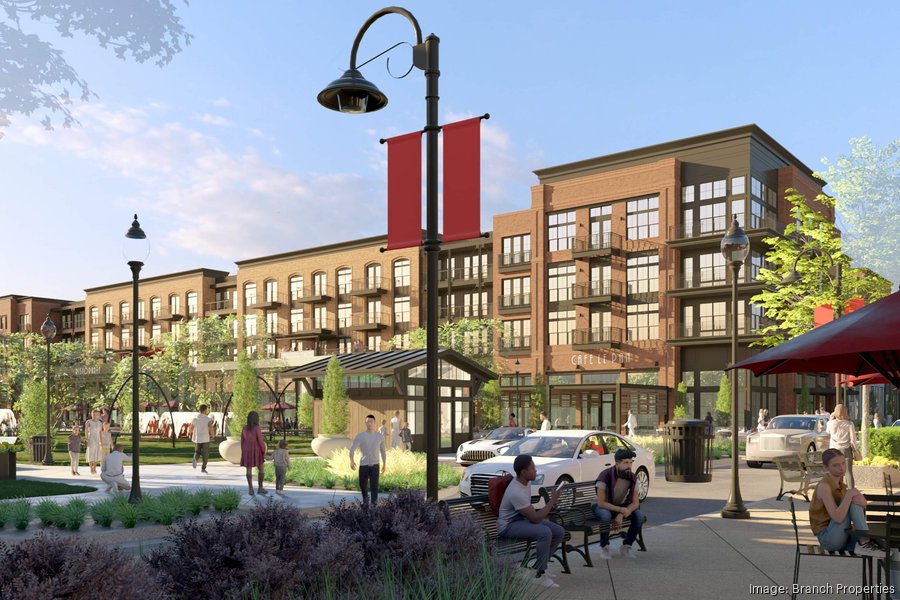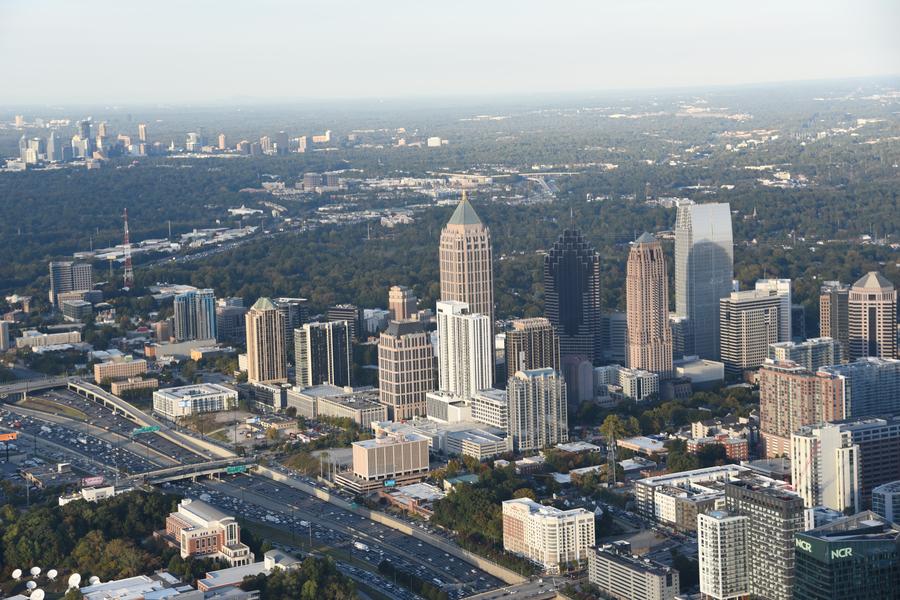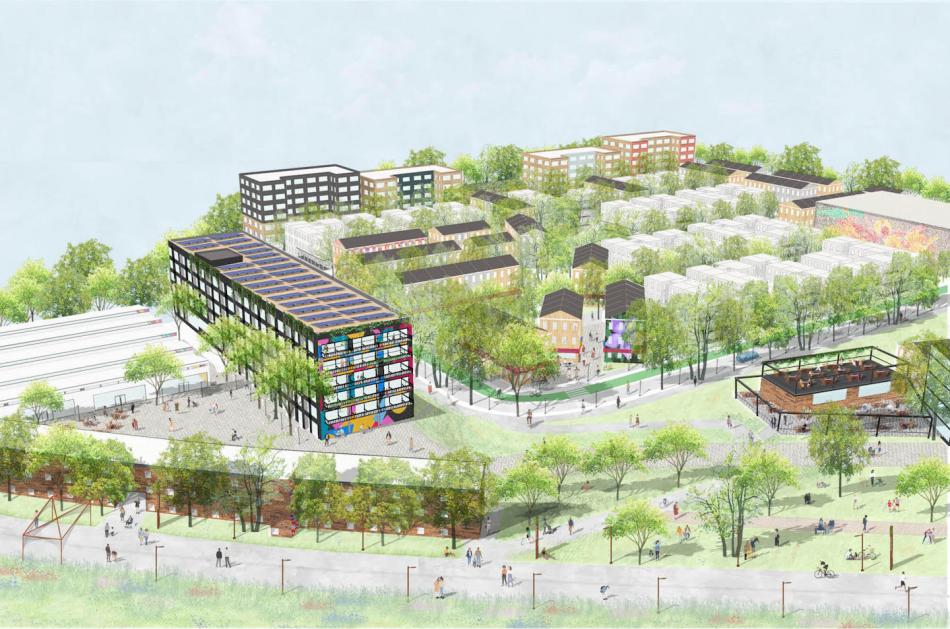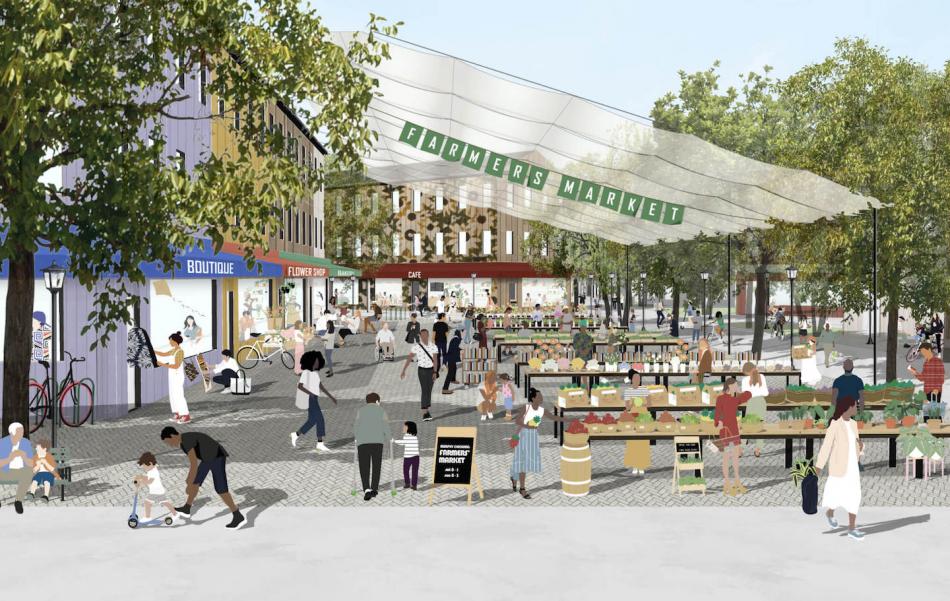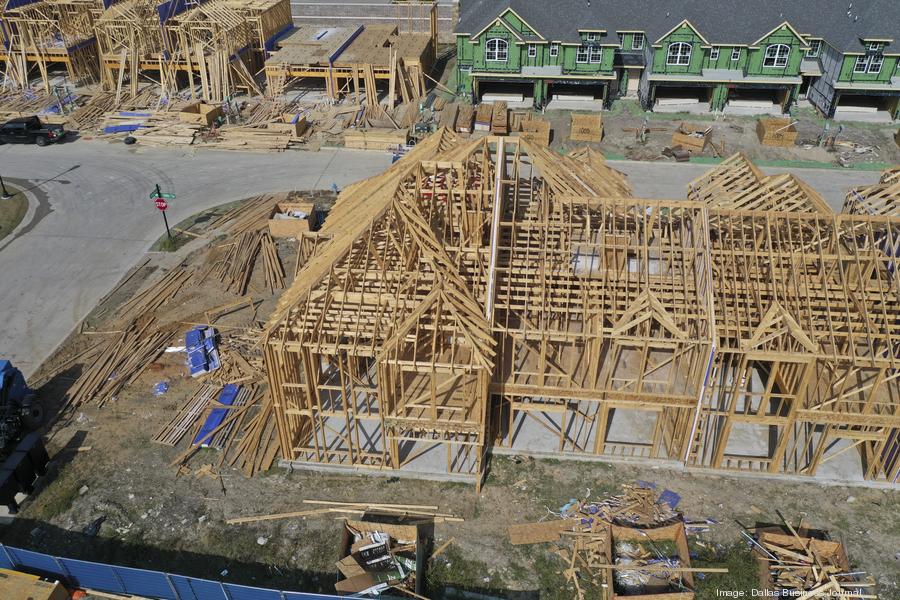Beltline, developer explain why Murphy Crossing deal fell apart
Beltline, developer explain why Murphy Crossing deal fell apart
Atlanta Beltline Inc. still hopes to break ground in 2026.
Atlanta Beltline Inc. still hopes to break ground in 2026. Read MoreBizjournals.com Feed (2022-04-02 21:43:57)
Atlanta Beltline Inc. still hopes to break ground in 2026.
Georgia Business Minds podcast guest Geoff Koski of KB Advisory Group says ‘downtowns are resilient’
Georgia Business Minds podcast guest Geoff Koski of KB Advisory Group says ‘downtowns are resilient’
Atlanta Business Chronicle launches a new podcast, “Georgia Business Minds.” The first episode takes a deep dive into what makes downtowns work.
Atlanta Business Chronicle launches a new podcast, “Georgia Business Minds.” The first episode takes a deep dive into what makes downtowns work. Read MoreBizjournals.com Feed (2019-09-06 17:16:48)
Atlanta Business Chronicle launches a new podcast, “Georgia Business Minds.” The first episode takes a deep dive into what makes downtowns work.
Georgia Business Minds podcast guest Geoff Koski of KB Advisory Group says ‘downtowns are resilient’
Georgia Business Minds podcast guest Geoff Koski of KB Advisory Group says ‘downtowns are resilient’
Atlanta Business Chronicle launches a new podcast, “Georgia Business Minds.” The first episode takes a deep dive into what makes downtowns work.
Atlanta Business Chronicle launches a new podcast, “Georgia Business Minds.” The first episode takes a deep dive into what makes downtowns work. Read MoreBizjournals.com Feed (2022-04-02 21:43:57)
Atlanta Business Chronicle launches a new podcast, “Georgia Business Minds.” The first episode takes a deep dive into what makes downtowns work.
1.5 years later, it’s crickets for parking-free downtown Decatur proposal
1.5 years later, it’s crickets for parking-free downtown Decatur proposal
1.5 years later, it’s crickets for parking-free downtown Decatur proposal
Josh Green
Wed, 02/05/2025 – 15:22
This month marks a year and ½ since a downtown Decatur project came to light that was cheered by Atlanta urbanists for its innovative approach to parking—or lack thereof.
But despite earning the Decatur Planning Commission’s unanimous approval in 2023 and other commendations at the city level, the dual-branded Hilton hotel has yet to break ground, and no one involved seems willing to discuss where it stands.
Numerous inquiries regarding the project’s status to Hilton, city officials, and Harrison Properties—a commercial firm trying to lease a portion of existing offices at the 213 Swanton Way site, per signage there—have not garnered responses, dating back to before Christmas.
Spokespeople for the City of Decatur directed more recent inquires to project developer Vision Hospitality Group, but those also weren’t returned this week.
The Hilton concept would replace three small surface parking lots and low-rise office buildings on Swanton Way, just east of Decatur’s Historic Square.
Signage at the site indicates one longtime tenant, Decatur Atlanta Printing, has recently relocated to Tucker.
Harrison Properties’ signage indicates about 5,000 square feet is available for a short-term lease in existing buildings.
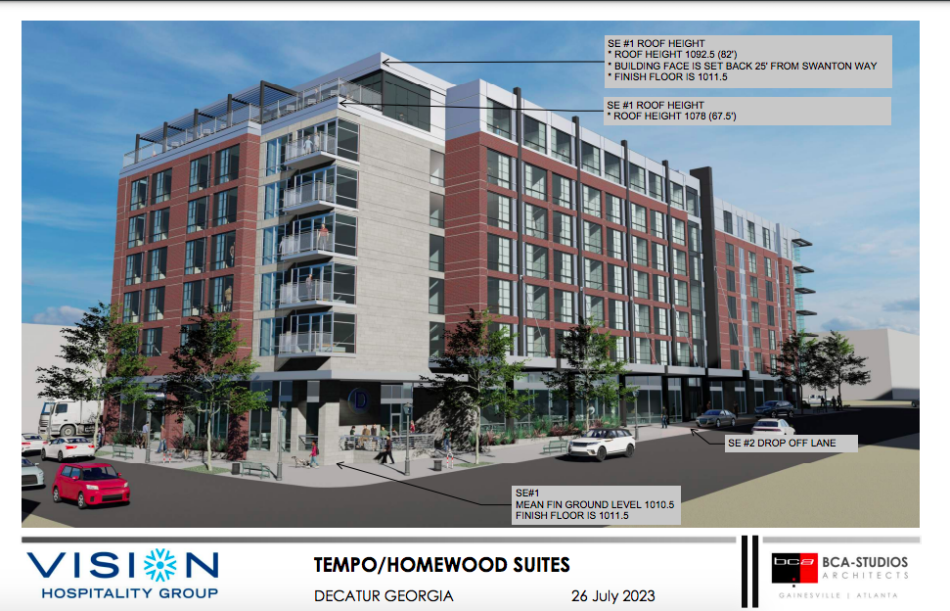
Detailed look at the building’s eastern face over Ponce de Leon Place. Vision Hospitality Group; designs, BCA Studios architecture
The proposal by Vision Hospitality and BCA Studios architects, unveiled in August 2023, stoked excitement for potentially setting a new standard—and an example of how to sop up excess parking—in walkable ITP areas.
According to earlier filings, the project’s two brands would be Tempo, a new lifestyle-focused flag, and Homewood Suites, Hilton’s extended-stay brand.
The seven-story proposal is most notable in that it would include no vehicle-parking component, instead tapping existing space in nearby garages.
The 241-room hotel would consume about half a block behind Taco Mac Decatur, between two large parking decks; one is located at 1 W. Court Square near the DeKalb County Courthouse, and the other stands just east near Inner Voice Brewing, currently used by The Task Force for Global Health.
Both parking structures stand within 300 feet of the hotel site, developers have said. The 1 W. Court Square parking deck alone has 493 spaces.
Vision Hospitality was aiming to enter into long-term agreements with owners of those decks to use excess parking, operating an around-the-clock valet for hotel guests who arrive by car instead of building parking into the hotel. A food-and-beverage tenant called Bluestone Lane café would be situated at the corner of Ponce de Leon Place, opposite the brewery, per 2023 plans.
Vision Hospitality officials previously told the DDA they expect many hotel guests would arrive via MARTA or rideshare services.
Hotel plans also call for adding more street trees and a fully protected bike lane.
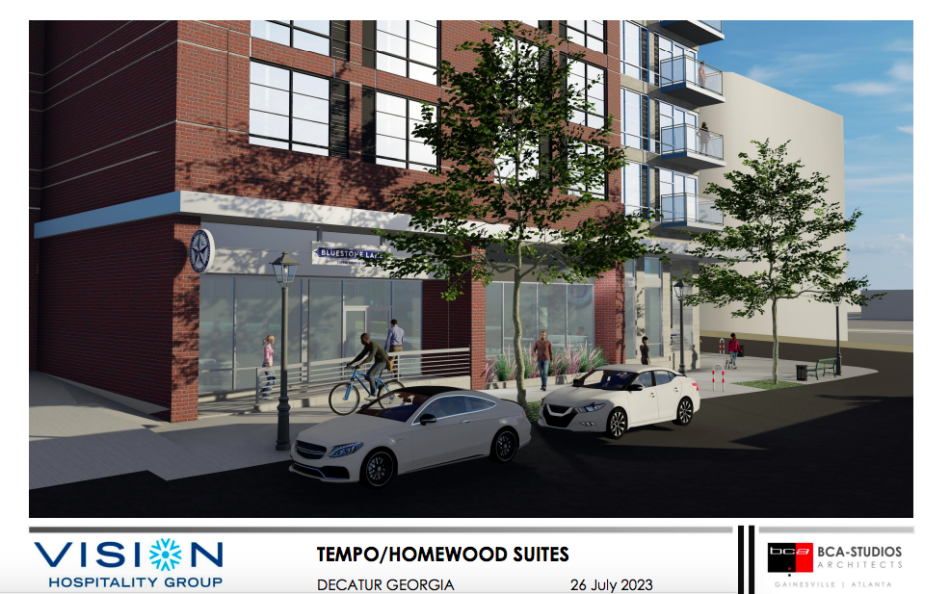
The planned cafe component opposite Inner Voice Brewing and other food-and-beverage businesses. Vision Hospitality Group; designs, BCA Studios architecture
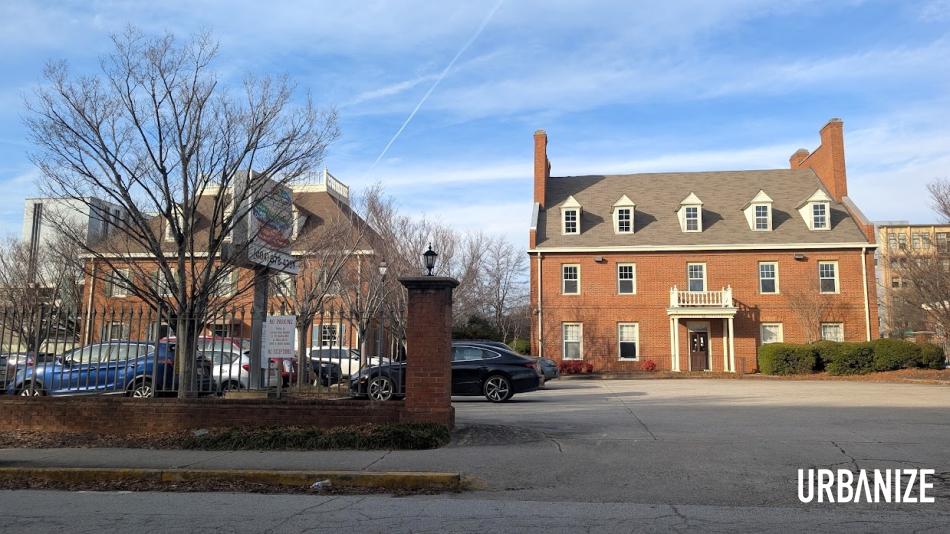
Surface parking in front of the longtime home of Decatur Atlanta Printing, which has recently relocated to Tucker, and other tenants. Urbanize Atlanta
According to a resolution adopted by the DDA in support of the hotel, the Swanton Way property is currently underutilized with 57 parking spaces and three two-story buildings, all of which would be removed.
The hotel project would be advantageous “for the development of trade, commerce, industry, and employment” while activating unused parking around the DeKalb County seat, per the DDA.
Find a more detailed look at Hilton’s (former?) plans for downtown Decatur in the gallery above.
…
Follow us on social media:
Twitter / Facebook/and now: Instagram
• Decatur news, discussion (Urbanize Atlanta)
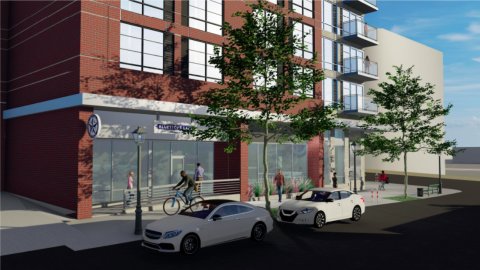
1.5 years later, it’s crickets for parking-free downtown Decatur proposal
Josh Green
Wed, 02/05/2025 – 15:22
This month marks a year and ½ since a downtown Decatur project came to light that was cheered by Atlanta urbanists for its innovative approach to parking—or lack thereof.But despite earning the Decatur Planning Commission’s unanimous approval in 2023 and other commendations at the city level, the dual-branded Hilton hotel has yet to break ground, and no one involved seems willing to discuss where it stands. Numerous inquiries regarding the project’s status to Hilton, city officials, and Harrison Properties—a commercial firm trying to lease a portion of existing offices at the 213 Swanton Way site, per signage there—have not garnered responses, dating back to before Christmas. Spokespeople for the City of Decatur directed more recent inquires to project developer Vision Hospitality Group, but those also weren’t returned this week. The Hilton concept would replace three small surface parking lots and low-rise office buildings on Swanton Way, just east of Decatur’s Historic Square. Signage at the site indicates one longtime tenant, Decatur Atlanta Printing, has recently relocated to Tucker. Harrison Properties’ signage indicates about 5,000 square feet is available for a short-term lease in existing buildings.
The proposed, dual-branded hotel site today along Commerce Drive. Josh Green/Urbanize Atlanta
Detailed look at the building’s eastern face over Ponce de Leon Place. Vision Hospitality Group; designs, BCA Studios architecture
The proposal by Vision Hospitality and BCA Studios architects, unveiled in August 2023, stoked excitement for potentially setting a new standard—and an example of how to sop up excess parking—in walkable ITP areas. According to earlier filings, the project’s two brands would be Tempo, a new lifestyle-focused flag, and Homewood Suites, Hilton’s extended-stay brand. The seven-story proposal is most notable in that it would include no vehicle-parking component, instead tapping existing space in nearby garages.The 241-room hotel would consume about half a block behind Taco Mac Decatur, between two large parking decks; one is located at 1 W. Court Square near the DeKalb County Courthouse, and the other stands just east near Inner Voice Brewing, currently used by The Task Force for Global Health.Both parking structures stand within 300 feet of the hotel site, developers have said. The 1 W. Court Square parking deck alone has 493 spaces.Vision Hospitality was aiming to enter into long-term agreements with owners of those decks to use excess parking, operating an around-the-clock valet for hotel guests who arrive by car instead of building parking into the hotel. A food-and-beverage tenant called Bluestone Lane café would be situated at the corner of Ponce de Leon Place, opposite the brewery, per 2023 plans. Vision Hospitality officials previously told the DDA they expect many hotel guests would arrive via MARTA or rideshare services.Hotel plans also call for adding more street trees and a fully protected bike lane.
The planned cafe component opposite Inner Voice Brewing and other food-and-beverage businesses. Vision Hospitality Group; designs, BCA Studios architecture
Surface parking in front of the longtime home of Decatur Atlanta Printing, which has recently relocated to Tucker, and other tenants. Urbanize Atlanta
According to a resolution adopted by the DDA in support of the hotel, the Swanton Way property is currently underutilized with 57 parking spaces and three two-story buildings, all of which would be removed.The hotel project would be advantageous “for the development of trade, commerce, industry, and employment” while activating unused parking around the DeKalb County seat, per the DDA. Find a more detailed look at Hilton’s (former?) plans for downtown Decatur in the gallery above.
The half-block in question at 213 Swanton Way, just east of Decatur’s Historic Square. Google Maps
…Follow us on social media: Twitter / Facebook/and now: Instagram • Decatur news, discussion (Urbanize Atlanta)
Tags
213 Swanton Way
Downtown Decatur
Tempo
Homewood Suites
Atlanta Hotels
Parking Lots
BCA Studios
Vision Hospitality Group
Bluestone Lane
Inner Voice Brewing
Decatur Planning Commission
Decatur City Commission
Decatur Park Lots
Images
The proposed, dual-branded hotel site today along Commerce Drive. Josh Green/Urbanize Atlanta
Along Ponce de Leon Place today. Josh Green/Urbanize Atlanta
The corner in question where Ponce de Leon Place meets Swanton Way today. Josh Green/Urbanize Atlanta
Surface parking in front of the longtime home of Decatur Atlanta Printing, which has recently relocated to Tucker, and other tenants. Urbanize Atlanta
Totality of the properties in question where Swanton Way meets Commerce Drive. Google Maps
The half-block in question at 213 Swanton Way, just east of Decatur’s Historic Square. Google Maps
Overview of the properties today, with Inner Voice Brewing’s building shown just to the bottom left. Google Maps
Detailed look at the building’s eastern face over Ponce de Leon Place. Vision Hospitality Group; designs, BCA Studios architecture
The planned cafe component opposite Inner Voice Brewing and other food-and-beverage businesses. Vision Hospitality Group; designs, BCA Studios architecture
The Swanton Way facade. Vision Hospitality Group; designs, BCA Studios architecture
Vision Hospitality Group; designs, BCA Studios architecture
The floorplan breakdown for the dual-branded hotel building’s ground floor. Vision Hospitality Group; designs, BCA Studios architecture
Plans for north-facing hotel amenities. Vision Hospitality Group; designs, BCA Studios architecture
Vision Hospitality Group; designs, BCA Studios architecture
Subtitle
Plans call(ed) for dual-branded Hilton concept with cafe, protected bike lane, more trees
Neighborhood
Decatur
Background Image
Image
Associated Project
213 Swanton Way
Before/After Images
Sponsored Post
Off Read More
1.5 years later, it’s crickets for parking-free downtown Decatur proposal
Josh Green
Wed, 02/05/2025 – 15:22
This month marks a year and ½ since a downtown Decatur project came to light that was cheered by Atlanta urbanists for its innovative approach to parking—or lack thereof.But despite earning the Decatur Planning Commission’s unanimous approval in 2023 and other commendations at the city level, the dual-branded Hilton hotel has yet to break ground, and no one involved seems willing to discuss where it stands. Numerous inquiries regarding the project’s status to Hilton, city officials, and Harrison Properties—a commercial firm trying to lease a portion of existing offices at the 213 Swanton Way site, per signage there—have not garnered responses, dating back to before Christmas. Spokespeople for the City of Decatur directed more recent inquires to project developer Vision Hospitality Group, but those also weren’t returned this week. The Hilton concept would replace three small surface parking lots and low-rise office buildings on Swanton Way, just east of Decatur’s Historic Square. Signage at the site indicates one longtime tenant, Decatur Atlanta Printing, has recently relocated to Tucker. Harrison Properties’ signage indicates about 5,000 square feet is available for a short-term lease in existing buildings.
The proposed, dual-branded hotel site today along Commerce Drive. Josh Green/Urbanize Atlanta
Detailed look at the building’s eastern face over Ponce de Leon Place. Vision Hospitality Group; designs, BCA Studios architecture
The proposal by Vision Hospitality and BCA Studios architects, unveiled in August 2023, stoked excitement for potentially setting a new standard—and an example of how to sop up excess parking—in walkable ITP areas. According to earlier filings, the project’s two brands would be Tempo, a new lifestyle-focused flag, and Homewood Suites, Hilton’s extended-stay brand. The seven-story proposal is most notable in that it would include no vehicle-parking component, instead tapping existing space in nearby garages.The 241-room hotel would consume about half a block behind Taco Mac Decatur, between two large parking decks; one is located at 1 W. Court Square near the DeKalb County Courthouse, and the other stands just east near Inner Voice Brewing, currently used by The Task Force for Global Health.Both parking structures stand within 300 feet of the hotel site, developers have said. The 1 W. Court Square parking deck alone has 493 spaces.Vision Hospitality was aiming to enter into long-term agreements with owners of those decks to use excess parking, operating an around-the-clock valet for hotel guests who arrive by car instead of building parking into the hotel. A food-and-beverage tenant called Bluestone Lane café would be situated at the corner of Ponce de Leon Place, opposite the brewery, per 2023 plans. Vision Hospitality officials previously told the DDA they expect many hotel guests would arrive via MARTA or rideshare services.Hotel plans also call for adding more street trees and a fully protected bike lane.
The planned cafe component opposite Inner Voice Brewing and other food-and-beverage businesses. Vision Hospitality Group; designs, BCA Studios architecture
Surface parking in front of the longtime home of Decatur Atlanta Printing, which has recently relocated to Tucker, and other tenants. Urbanize Atlanta
According to a resolution adopted by the DDA in support of the hotel, the Swanton Way property is currently underutilized with 57 parking spaces and three two-story buildings, all of which would be removed.The hotel project would be advantageous “for the development of trade, commerce, industry, and employment” while activating unused parking around the DeKalb County seat, per the DDA. Find a more detailed look at Hilton’s (former?) plans for downtown Decatur in the gallery above.
The half-block in question at 213 Swanton Way, just east of Decatur’s Historic Square. Google Maps
…Follow us on social media: Twitter / Facebook/and now: Instagram • Decatur news, discussion (Urbanize Atlanta)
Tags
213 Swanton Way
Downtown Decatur
Tempo
Homewood Suites
Atlanta Hotels
Parking Lots
BCA Studios
Vision Hospitality Group
Bluestone Lane
Inner Voice Brewing
Decatur Planning Commission
Decatur City Commission
Decatur Park Lots
Images
The proposed, dual-branded hotel site today along Commerce Drive. Josh Green/Urbanize Atlanta
Along Ponce de Leon Place today. Josh Green/Urbanize Atlanta
The corner in question where Ponce de Leon Place meets Swanton Way today. Josh Green/Urbanize Atlanta
Surface parking in front of the longtime home of Decatur Atlanta Printing, which has recently relocated to Tucker, and other tenants. Urbanize Atlanta
Totality of the properties in question where Swanton Way meets Commerce Drive. Google Maps
The half-block in question at 213 Swanton Way, just east of Decatur’s Historic Square. Google Maps
Overview of the properties today, with Inner Voice Brewing’s building shown just to the bottom left. Google Maps
Detailed look at the building’s eastern face over Ponce de Leon Place. Vision Hospitality Group; designs, BCA Studios architecture
The planned cafe component opposite Inner Voice Brewing and other food-and-beverage businesses. Vision Hospitality Group; designs, BCA Studios architecture
The Swanton Way facade. Vision Hospitality Group; designs, BCA Studios architecture
Vision Hospitality Group; designs, BCA Studios architecture
The floorplan breakdown for the dual-branded hotel building’s ground floor. Vision Hospitality Group; designs, BCA Studios architecture
Plans for north-facing hotel amenities. Vision Hospitality Group; designs, BCA Studios architecture
Vision Hospitality Group; designs, BCA Studios architecture
Subtitle
Plans call(ed) for dual-branded Hilton concept with cafe, protected bike lane, more trees
Neighborhood
Decatur
Background Image
Image
Associated Project
213 Swanton Way
Before/After Images
Sponsored Post
Off
Branch Properties secures approval for Gainesville mall redevelopment
Branch Properties secures approval for Gainesville mall redevelopment
The Atlanta-based developer aims to create a contemporary development that functions as a town center.
The Atlanta-based developer aims to create a contemporary development that functions as a town center. Read MoreBizjournals.com Feed (2022-04-02 21:43:57)
The Atlanta-based developer aims to create a contemporary development that functions as a town center.
Newer Atlanta office buildings are 92% occupied, per new data
Newer Atlanta office buildings are 92% occupied, per new data
A divide between high-quality and low-quality office space in Atlanta is widening.
A divide between high-quality and low-quality office space in Atlanta is widening. Read MoreBizjournals.com Feed (2022-04-02 21:43:57)
A divide between high-quality and low-quality office space in Atlanta is widening.
Newer Atlanta office buildings are 92% occupied, per new data
Newer Atlanta office buildings are 92% occupied, per new data
A divide between high-quality and low-quality office space in Atlanta is widening.
A divide between high-quality and low-quality office space in Atlanta is widening. Read MoreBizjournals.com Feed (2019-09-06 17:16:48)
A divide between high-quality and low-quality office space in Atlanta is widening.
Branch Properties secures approval for Gainesville mall redevelopment
Branch Properties secures approval for Gainesville mall redevelopment
The Atlanta-based developer aims to create a contemporary development that functions as a town center.
The Atlanta-based developer aims to create a contemporary development that functions as a town center. Read MoreBizjournals.com Feed (2019-09-06 17:16:48)
The Atlanta-based developer aims to create a contemporary development that functions as a town center.
Beltline: Here’s why pivotal Murphy Crossing project fell apart
Beltline: Here’s why pivotal Murphy Crossing project fell apart
Beltline: Here’s why pivotal Murphy Crossing project fell apart
Josh Green
Wed, 02/05/2025 – 12:33
Plans that called for protracted construction timelines, far less housing than initially proposed, and unexplained costs in the tens of millions of dollars are responsible for torpedoing the latest mixed-use revival of Murphy Crossing, one of the most consequential redevelopment sites in the city, according to Atlanta Beltline Inc.
Last month, Beltline officials made a bombshell announcement that a deal was being terminated with Culdesac Inc., an Arizona-based firm known for innovative approaches to infill development, that called for finally redeveloping Murphy Crossing, a 20-acre, formerly industrial site along the Westside Trail. The fallout from that decision was the subject of a recent front-page AJC news story, bringing the subject back to the forefront.
Now that contract negotiations with Culdesac and its Atlanta-based partner Urban Oasis Development have been terminated, according to Beltline officials, the agency is at liberty to tell its side of the Murphy Crossing story.
Slashed home counts, unexplained costs, “ballooned” timelines, and other factors played roles in the Beltline ultimately deciding to move on and seek another development team for the site. It remains “one of the largest and most impactful” slates for redevelopment on the 22-mile multi-use trail loop, and a prime location for car-free living, per a Beltline media statement released today.
The Beltline’s negotiations with Culdesac and Urban Oasis began in September 2022, lending hope that a barren expanse of land and unused buildings might be injected with new life, in the form of commercial space and affordable housing. (The Beltline had canceled plans for Murphy Crossing’s remake with another development team in the summer of 2020, following public concern over that team’s qualifications.) In March last year, the Beltline announced the development pair had officially gotten the Murphy Crossing job.
According to the Beltline, Culdesac and Urban Oasis were responsible for developing a Murphy Crossing masterplan, completing all pre-construction work such as securing entitlements and permits, finding the required financing, and finally, managing construction and development “in a timely, cost-effective manner.”
The arrangement fell short of expectations, and Beltline leaders on Dec. 30 made what they called a difficult decision in terminating negotiations. The agency was legally prohibited from publicly discussing the behind-the-scenes process, including its numerous complications, while negotiations were still active, per the Beltline’s announcement.
Below are key reasons provided by Dennis Richards Jr., the Beltline’s vice president of housing policy and development, for why he says the deal with Culdesac and Urban Oasis fell apart, according to the agency. The following has been lightly edited for clarity and length:
- Throughout the negotiation process, the [Murphy Crossing] project ballooned from an initial two phases up to a total of six phases of development;
- The developers reduced the proposed first phase of 310 residential units three times down to a proposed 105 residential units, less than a third of the units initially envisioned;
- The developers requested excessive and unreasonable public incentives including, for example, an ambiguous request for $38 million across all phases of the project, which would have been in addition to the discounts and favorable terms on the land, and certain real estate tax incentives that the project could have been eligible for;
- The developers requested an increase in the inspection period from an initial 120 days per the initial contract terms to over 280 days;
- The developers failed to move forward simultaneously on critical, pre-construction items like rezoning, financing, and other planning activities, which significantly delayed development of the site;
- The developers’ repeated requests for extensions of the inspection period had a ripple effect throughout the project’s critical path timeline because they would have required ABI to provide additional extensions and renegotiate critical dates;
ABI offered a compelling incentive package to induce the developers to begin construction of the first phase of the project and to assist with needed infrastructure costs. Despite these attractive incentives, the developers continued to request material changes to the project.
For example, ABI offered the developers nearly a $10 million incentive package for phase one of the project, excluding favorable terms on the land. However, after ABI agreed to provide this generous incentive package, the developers proposed to reduce the residential units they were planning to build in phase one even further from 160 units down to 105 units, while continuing to ask ABI for $12 million in public incentives.
These repeated material changes not only would have further delayed the project, but they would have required ABI to continue altering its contractual terms with the developers; and
The developers were unable to secure sufficient capital to finance the project, but ABI did not immediately terminate its negotiations.
Instead, ABI and its agency partners, Invest Atlanta and the Atlanta Urban Development Corporation, offered generous financing options, grants, and other public monies to the developers to help them get the project started.
However, the developers failed to submit an application to either Invest Atlanta or AUDC to secure any of those funds.
We’ve reached out to Culdesac officials for comment and will update this story with any additional information that comes.
In last week’s AJC story, Culdesac officials said they don’t believe the Beltline had the right to terminate the purchase and sale agreement, while an Urban Oasis leader said his company had fulfilled all contractual obligations and was still ready to execute work on Murphy Crossing. Neither company lent an explanation as to why the Beltline deal had soured.
Despite the setbacks, Beltline officials say they remain determined to see the redevelopment of Murphy Crossing through.
The Beltline plans to host a virtual Murphy Crossing Stakeholder Advisory Committee meeting at 6:30 p.m. Feb. 19, along with a larger meeting sometime in March. The public will be invited to tune in to both meetings for updates on Murphy Crossing, but only committee members will be permitted to ask questions or comment, per Beltline officials.
By the fourth quarter of 2025, Beltline officials plan to fully entitle the Murphy Crossing site, a process that would include a Development of Regional Impact review at the state level. Planning efforts will continue between now and then, per officials.
According to today’s announcement, the Beltline’s goal calls for breaking ground on Murphy Crossing’s first phase in 2026.
What that might look like, clearly, remains to be seen.
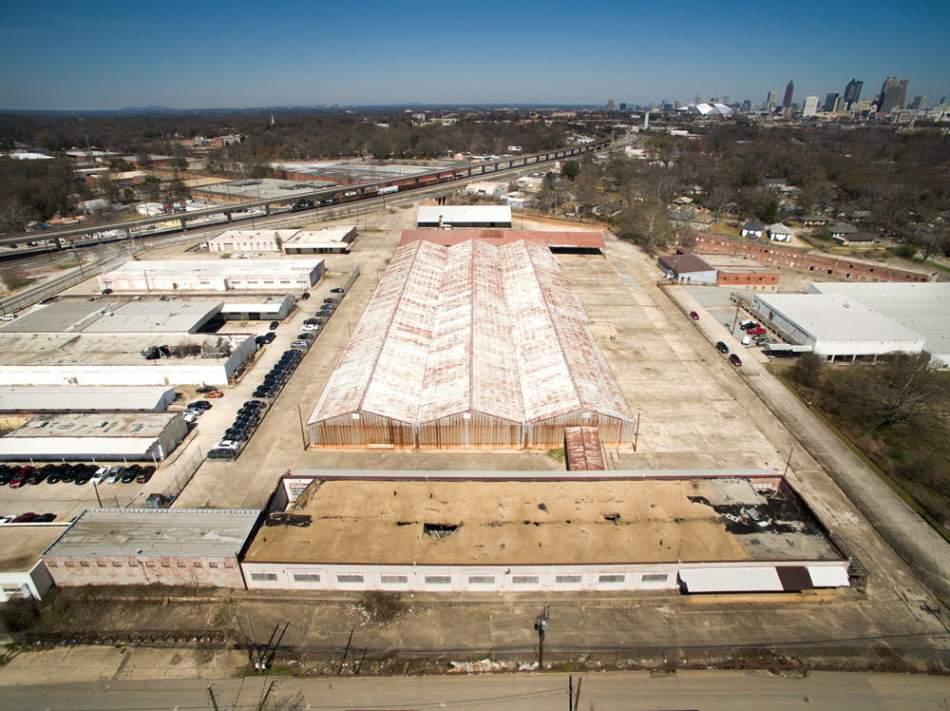
The 20-acre property’s scope, bordered by a MARTA line in Southwest Atlanta.Photo by The Sintoses, courtesy of Atlanta BeltLine Inc.
…
Follow us on social media:
Twitter / Facebook/and now: Instagram
• Oakland City news, discussion (Urbanize Atlanta)
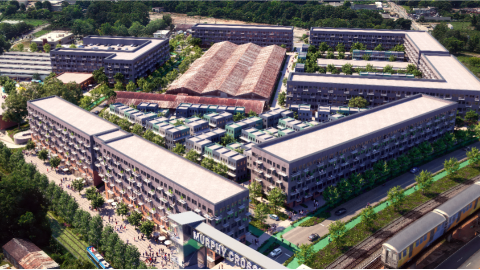
Beltline: Here’s why pivotal Murphy Crossing project fell apart
Josh Green
Wed, 02/05/2025 – 12:33
Plans that called for protracted construction timelines, far less housing than initially proposed, and unexplained costs in the tens of millions of dollars are responsible for torpedoing the latest mixed-use revival of Murphy Crossing, one of the most consequential redevelopment sites in the city, according to Atlanta Beltline Inc.Last month, Beltline officials made a bombshell announcement that a deal was being terminated with Culdesac Inc., an Arizona-based firm known for innovative approaches to infill development, that called for finally redeveloping Murphy Crossing, a 20-acre, formerly industrial site along the Westside Trail. The fallout from that decision was the subject of a recent front-page AJC news story, bringing the subject back to the forefront. Now that contract negotiations with Culdesac and its Atlanta-based partner Urban Oasis Development have been terminated, according to Beltline officials, the agency is at liberty to tell its side of the Murphy Crossing story. Slashed home counts, unexplained costs, “ballooned” timelines, and other factors played roles in the Beltline ultimately deciding to move on and seek another development team for the site. It remains “one of the largest and most impactful” slates for redevelopment on the 22-mile multi-use trail loop, and a prime location for car-free living, per a Beltline media statement released today. The Beltline’s negotiations with Culdesac and Urban Oasis began in September 2022, lending hope that a barren expanse of land and unused buildings might be injected with new life, in the form of commercial space and affordable housing. (The Beltline had canceled plans for Murphy Crossing’s remake with another development team in the summer of 2020, following public concern over that team’s qualifications.) In March last year, the Beltline announced the development pair had officially gotten the Murphy Crossing job.
Murphy Crossing site rendering by Culdesac
According to the Beltline, Culdesac and Urban Oasis were responsible for developing a Murphy Crossing masterplan, completing all pre-construction work such as securing entitlements and permits, finding the required financing, and finally, managing construction and development “in a timely, cost-effective manner.”The arrangement fell short of expectations, and Beltline leaders on Dec. 30 made what they called a difficult decision in terminating negotiations. The agency was legally prohibited from publicly discussing the behind-the-scenes process, including its numerous complications, while negotiations were still active, per the Beltline’s announcement. Below are key reasons provided by Dennis Richards Jr., the Beltline’s vice president of housing policy and development, for why he says the deal with Culdesac and Urban Oasis fell apart, according to the agency. The following has been lightly edited for clarity and length: Throughout the negotiation process, the [Murphy Crossing] project ballooned from an initial two phases up to a total of six phases of development;The developers reduced the proposed first phase of 310 residential units three times down to a proposed 105 residential units, less than a third of the units initially envisioned;The developers requested excessive and unreasonable public incentives including, for example, an ambiguous request for $38 million across all phases of the project, which would have been in addition to the discounts and favorable terms on the land, and certain real estate tax incentives that the project could have been eligible for;The developers requested an increase in the inspection period from an initial 120 days per the initial contract terms to over 280 days;The developers failed to move forward simultaneously on critical, pre-construction items like rezoning, financing, and other planning activities, which significantly delayed development of the site; The developers’ repeated requests for extensions of the inspection period had a ripple effect throughout the project’s critical path timeline because they would have required ABI to provide additional extensions and renegotiate critical dates; ABI offered a compelling incentive package to induce the developers to begin construction of the first phase of the project and to assist with needed infrastructure costs. Despite these attractive incentives, the developers continued to request material changes to the project. For example, ABI offered the developers nearly a $10 million incentive package for phase one of the project, excluding favorable terms on the land. However, after ABI agreed to provide this generous incentive package, the developers proposed to reduce the residential units they were planning to build in phase one even further from 160 units down to 105 units, while continuing to ask ABI for $12 million in public incentives. These repeated material changes not only would have further delayed the project, but they would have required ABI to continue altering its contractual terms with the developers; andThe developers were unable to secure sufficient capital to finance the project, but ABI did not immediately terminate its negotiations. Instead, ABI and its agency partners, Invest Atlanta and the Atlanta Urban Development Corporation, offered generous financing options, grants, and other public monies to the developers to help them get the project started. However, the developers failed to submit an application to either Invest Atlanta or AUDC to secure any of those funds.We’ve reached out to Culdesac officials for comment and will update this story with any additional information that comes. In last week’s AJC story, Culdesac officials said they don’t believe the Beltline had the right to terminate the purchase and sale agreement, while an Urban Oasis leader said his company had fulfilled all contractual obligations and was still ready to execute work on Murphy Crossing. Neither company lent an explanation as to why the Beltline deal had soured.
Murphy Crossing site rendering by Culdesac
Despite the setbacks, Beltline officials say they remain determined to see the redevelopment of Murphy Crossing through. The Beltline plans to host a virtual Murphy Crossing Stakeholder Advisory Committee meeting at 6:30 p.m. Feb. 19, along with a larger meeting sometime in March. The public will be invited to tune in to both meetings for updates on Murphy Crossing, but only committee members will be permitted to ask questions or comment, per Beltline officials. By the fourth quarter of 2025, Beltline officials plan to fully entitle the Murphy Crossing site, a process that would include a Development of Regional Impact review at the state level. Planning efforts will continue between now and then, per officials. According to today’s announcement, the Beltline’s goal calls for breaking ground on Murphy Crossing’s first phase in 2026. What that might look like, clearly, remains to be seen.
The 20-acre property’s scope, bordered by a MARTA line in Southwest Atlanta.Photo by The Sintoses, courtesy of Atlanta BeltLine Inc.
…Follow us on social media: Twitter / Facebook/and now: Instagram • Oakland City news, discussion (Urbanize Atlanta)
Tags
1050 Murphy Avenue
Murphy Crossing
Adair Park
West End
Capitol View
Atlanta BeltLine
Westside Trail
Culdesac
Urban Oasis Development
Kronberg Urbanists + Architects
LDG Consulting
T. Dallas Smith and Co.
Adaptive-Reuse
Atlanta Development
Oakland Exchange
Adaptive-Reuse Development
Atlanta History
BeltLine Development
Southwest Atlanta
I-Mix
Subtitle
Slashed home counts, unexplained costs, “ballooned” timelines played role, per Beltline leaders
Neighborhood
Oakland City
Background Image
Image
Before/After Images
Sponsored Post
Off Read More
Beltline: Here’s why pivotal Murphy Crossing project fell apart
Josh Green
Wed, 02/05/2025 – 12:33
Plans that called for protracted construction timelines, far less housing than initially proposed, and unexplained costs in the tens of millions of dollars are responsible for torpedoing the latest mixed-use revival of Murphy Crossing, one of the most consequential redevelopment sites in the city, according to Atlanta Beltline Inc.Last month, Beltline officials made a bombshell announcement that a deal was being terminated with Culdesac Inc., an Arizona-based firm known for innovative approaches to infill development, that called for finally redeveloping Murphy Crossing, a 20-acre, formerly industrial site along the Westside Trail. The fallout from that decision was the subject of a recent front-page AJC news story, bringing the subject back to the forefront. Now that contract negotiations with Culdesac and its Atlanta-based partner Urban Oasis Development have been terminated, according to Beltline officials, the agency is at liberty to tell its side of the Murphy Crossing story. Slashed home counts, unexplained costs, “ballooned” timelines, and other factors played roles in the Beltline ultimately deciding to move on and seek another development team for the site. It remains “one of the largest and most impactful” slates for redevelopment on the 22-mile multi-use trail loop, and a prime location for car-free living, per a Beltline media statement released today. The Beltline’s negotiations with Culdesac and Urban Oasis began in September 2022, lending hope that a barren expanse of land and unused buildings might be injected with new life, in the form of commercial space and affordable housing. (The Beltline had canceled plans for Murphy Crossing’s remake with another development team in the summer of 2020, following public concern over that team’s qualifications.) In March last year, the Beltline announced the development pair had officially gotten the Murphy Crossing job.
Murphy Crossing site rendering by Culdesac
According to the Beltline, Culdesac and Urban Oasis were responsible for developing a Murphy Crossing masterplan, completing all pre-construction work such as securing entitlements and permits, finding the required financing, and finally, managing construction and development “in a timely, cost-effective manner.”The arrangement fell short of expectations, and Beltline leaders on Dec. 30 made what they called a difficult decision in terminating negotiations. The agency was legally prohibited from publicly discussing the behind-the-scenes process, including its numerous complications, while negotiations were still active, per the Beltline’s announcement. Below are key reasons provided by Dennis Richards Jr., the Beltline’s vice president of housing policy and development, for why he says the deal with Culdesac and Urban Oasis fell apart, according to the agency. The following has been lightly edited for clarity and length: Throughout the negotiation process, the [Murphy Crossing] project ballooned from an initial two phases up to a total of six phases of development;The developers reduced the proposed first phase of 310 residential units three times down to a proposed 105 residential units, less than a third of the units initially envisioned;The developers requested excessive and unreasonable public incentives including, for example, an ambiguous request for $38 million across all phases of the project, which would have been in addition to the discounts and favorable terms on the land, and certain real estate tax incentives that the project could have been eligible for;The developers requested an increase in the inspection period from an initial 120 days per the initial contract terms to over 280 days;The developers failed to move forward simultaneously on critical, pre-construction items like rezoning, financing, and other planning activities, which significantly delayed development of the site; The developers’ repeated requests for extensions of the inspection period had a ripple effect throughout the project’s critical path timeline because they would have required ABI to provide additional extensions and renegotiate critical dates; ABI offered a compelling incentive package to induce the developers to begin construction of the first phase of the project and to assist with needed infrastructure costs. Despite these attractive incentives, the developers continued to request material changes to the project. For example, ABI offered the developers nearly a $10 million incentive package for phase one of the project, excluding favorable terms on the land. However, after ABI agreed to provide this generous incentive package, the developers proposed to reduce the residential units they were planning to build in phase one even further from 160 units down to 105 units, while continuing to ask ABI for $12 million in public incentives. These repeated material changes not only would have further delayed the project, but they would have required ABI to continue altering its contractual terms with the developers; andThe developers were unable to secure sufficient capital to finance the project, but ABI did not immediately terminate its negotiations. Instead, ABI and its agency partners, Invest Atlanta and the Atlanta Urban Development Corporation, offered generous financing options, grants, and other public monies to the developers to help them get the project started. However, the developers failed to submit an application to either Invest Atlanta or AUDC to secure any of those funds.We’ve reached out to Culdesac officials for comment and will update this story with any additional information that comes. In last week’s AJC story, Culdesac officials said they don’t believe the Beltline had the right to terminate the purchase and sale agreement, while an Urban Oasis leader said his company had fulfilled all contractual obligations and was still ready to execute work on Murphy Crossing. Neither company lent an explanation as to why the Beltline deal had soured.
Murphy Crossing site rendering by Culdesac
Despite the setbacks, Beltline officials say they remain determined to see the redevelopment of Murphy Crossing through. The Beltline plans to host a virtual Murphy Crossing Stakeholder Advisory Committee meeting at 6:30 p.m. Feb. 19, along with a larger meeting sometime in March. The public will be invited to tune in to both meetings for updates on Murphy Crossing, but only committee members will be permitted to ask questions or comment, per Beltline officials. By the fourth quarter of 2025, Beltline officials plan to fully entitle the Murphy Crossing site, a process that would include a Development of Regional Impact review at the state level. Planning efforts will continue between now and then, per officials. According to today’s announcement, the Beltline’s goal calls for breaking ground on Murphy Crossing’s first phase in 2026. What that might look like, clearly, remains to be seen.
The 20-acre property’s scope, bordered by a MARTA line in Southwest Atlanta.Photo by The Sintoses, courtesy of Atlanta BeltLine Inc.
…Follow us on social media: Twitter / Facebook/and now: Instagram • Oakland City news, discussion (Urbanize Atlanta)
Tags
1050 Murphy Avenue
Murphy Crossing
Adair Park
West End
Capitol View
Atlanta BeltLine
Westside Trail
Culdesac
Urban Oasis Development
Kronberg Urbanists + Architects
LDG Consulting
T. Dallas Smith and Co.
Adaptive-Reuse
Atlanta Development
Oakland Exchange
Adaptive-Reuse Development
Atlanta History
BeltLine Development
Southwest Atlanta
I-Mix
Subtitle
Slashed home counts, unexplained costs, “ballooned” timelines played role, per Beltline leaders
Neighborhood
Oakland City
Background Image
Image
Before/After Images
Sponsored Post
Off
Tariffs could have a chilling effect on home construction amid inventory crisis
Tariffs could have a chilling effect on home construction amid inventory crisis
Homebuilding, construction and development executives say planned federal tariffs would inevitably increase prices on key materials, and those costs would be passed along to consumers.
Homebuilding, construction and development executives say planned federal tariffs would inevitably increase prices on key materials, and those costs would be passed along to consumers. Read MoreBizjournals.com Feed (2019-09-06 17:16:48)
Homebuilding, construction and development executives say planned federal tariffs would inevitably increase prices on key materials, and those costs would be passed along to consumers.
